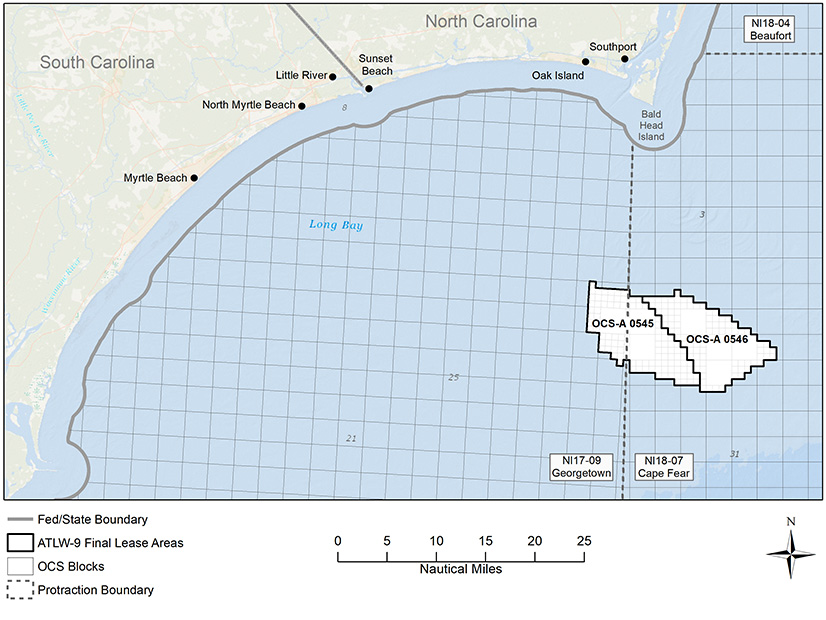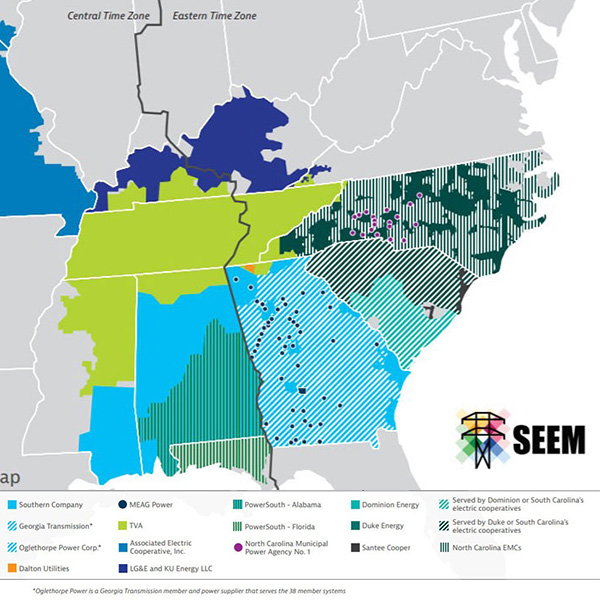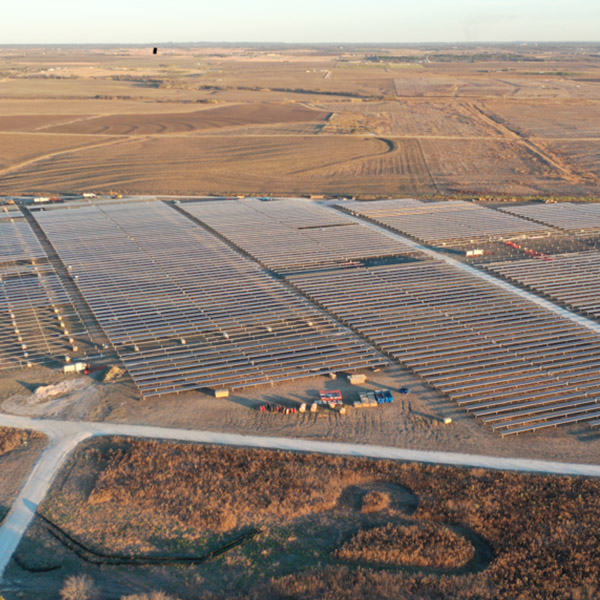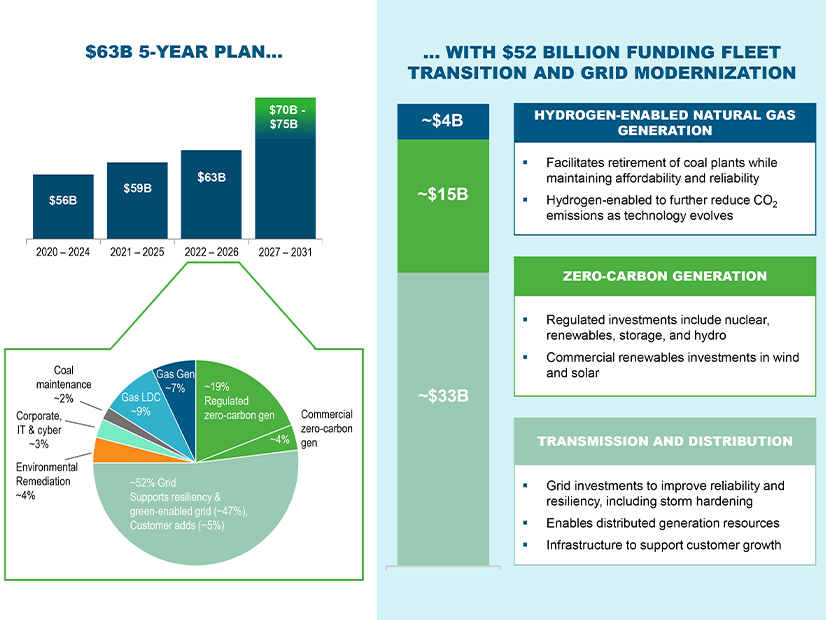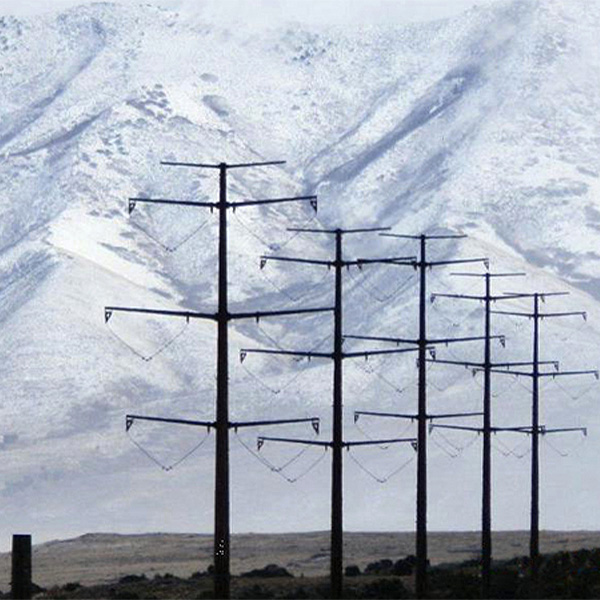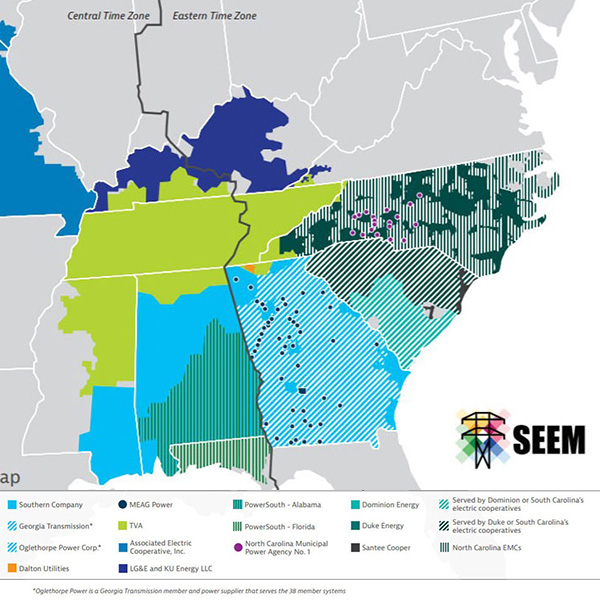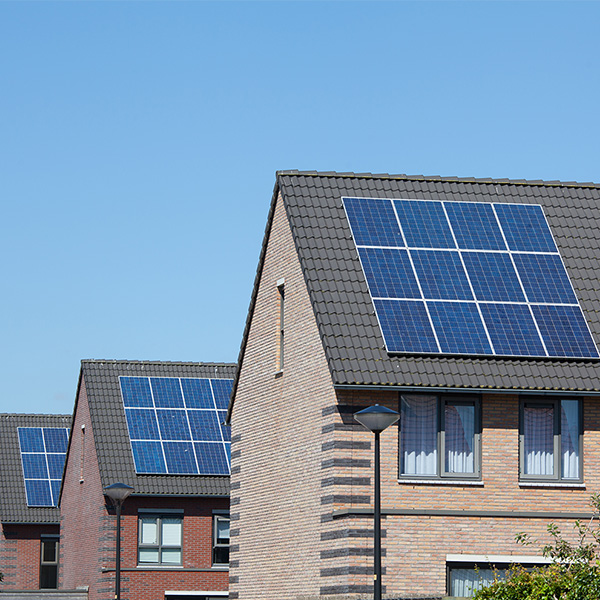Duke Energy
A Southern Co. official gamely defended the Southeast Energy Exchange Market in a debate at the RE+ Southeast conference with three RTO proponents.
Duke Energy and TotalEnergies will pay a combined $315 million to lease 110,000 acres off North Carolina that could produce 1.3 GW in offshore wind.
Southeast Energy Exchange Market members launched an informational webinar series for participants prior to the start of market trials in late summer.
Duke Energy's net income declined in the first quarter despite a whopping increase in sales compared to a year ago because of the costs of winter storms.
Purdue University and Duke Energy said they will collaborate to possibly bring in a small modular nuclear reactor as the campus’s power source.
Microsoft and PepsiCo took the No. 1 and 2 spots in a new ranking of 55 large U.S. companies for their work on net-zero-emission targets.
Duke Energy executives touted the company’s clean energy plans during the company’s fourth-quarter earnings call.
FERC partly rejected Order 864 compliance filings by NorthWestern, Duke Energy and PacifiCorp regarding changes caused by the Tax Cuts and Jobs Act of 2017.
Members of the Southeast Energy Exchange Market argued on Monday for FERC to deny a rehearing request filed earlier this month by the market's opponents.
A proposed agreement between Duke Energy and solar advocates would lower the net metering rate residential rooftop solar owners receive for their excess power.
Want more? Advanced Search

